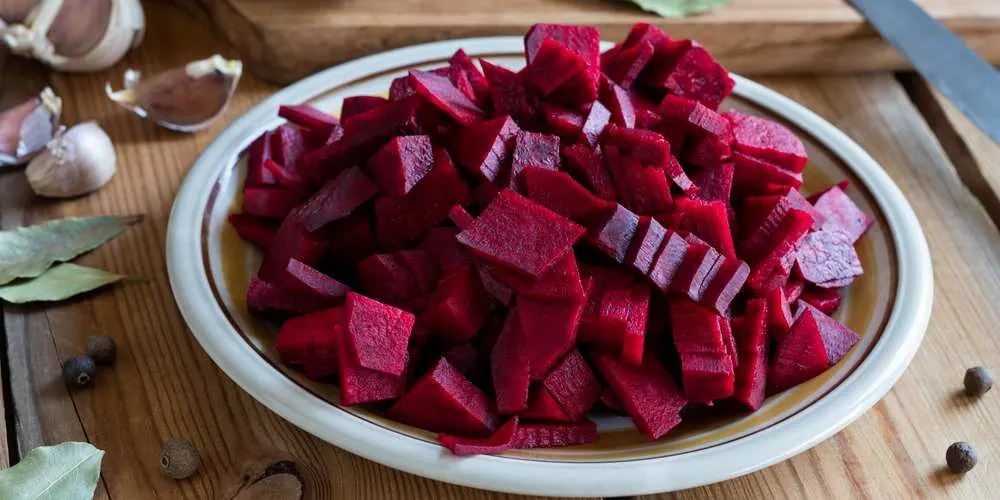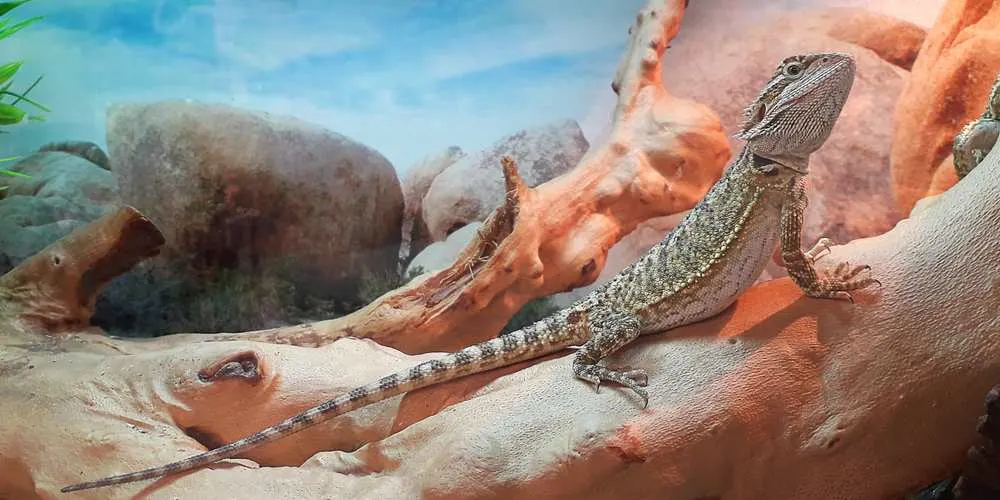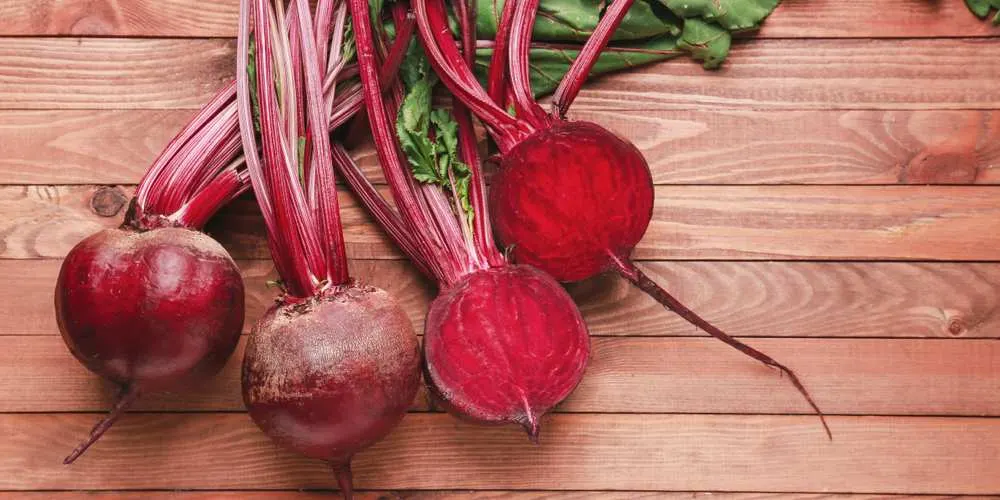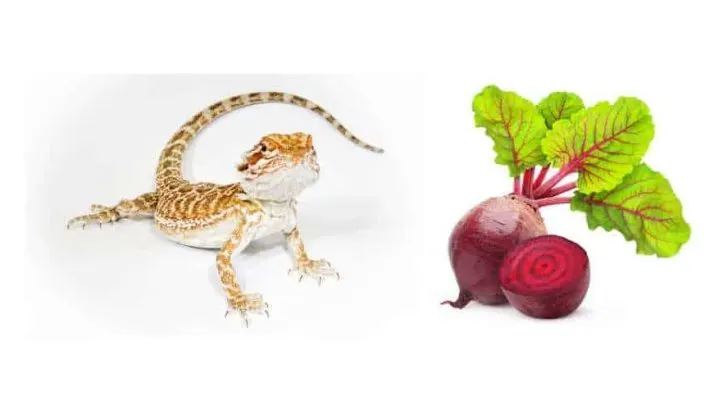No matter how much evidence you put in front of some people, they just won’t accept the truth of some things. One of those is the answer to the question: “Can bearded dragons eat beets?”.
Doubters can say whatever they want. The truth is plain and simple: yes, they can, but on rare occasions.
Maybe you are new to beardies, or perhaps you have a long-lasting experience with them. Be it you belong to the first or second group, it’s always beneficial to gather and collect all the information that exists out there.
Why are some people against feeding beets to bearded dragons? Are there some potentially detrimental nutrients present inside them? Is it the reddish color that resembles fire? Or the leaves that grow from inside out?
To the best of my knowledge, I’ll try to provide you with the complete story and truth behind this mythical topic in the realm of beardie enthusiasts.

The Benefits Of Beets For Bearded Dragons
Beetroot is one of those vegetables that skeptics often disregard when thinking about implementing them in the beardies’ diet. I understand them; it’s challenging to find a proper place for beets. With so many potential negative side-effects, many just instantly give up on them.
But just because something might prove detrimental doesn’t necessarily mean it will happen. As long as you follow the rules, you will stay on the positive side. Offering bearded dragons one teaspoon size beetroot chunk once a month will be just enough.
I would never recommend something that can lead to bearded dragons’ death. On the other hand, it’s wise to remember the amount that I just gave you; giving them more than that will potentially lead to some complications.
People often ask me how to offer beets to beardies properly. Like with every other plant, first and foremost comes the washing part. Put the beets under a calm stream of water and thoroughly wash them until all the dirt is gone.
The beetroot and beet greens (leaves that grow directly from the beetroot) are perfect treats to give to your beloved beardie. Only offer them raw variants. When beetroot is cooked, it loses most of its nutrients that are beneficial for your bearded dragons’ diet.
As you continue reading, I’ll go in-depth with exactly how beetroot affects bearded dragons’ health, both good and bad.
For now, I will focus on the positive stuff that beetroot provides to beardies.
On that note, take a look at its following macros:
| Calories | 43 |
| Sugar | 6.76 g |
| Fiber | 2.8 g |
| Protein | 1.61 g |
| Fat | 0.17 g |
| Potassium | 325 mg |
| Phosphorus | 40 mg |
| Calcium | 16 mg |
| Sodium | 78 mg |
| Water | 87.58 g |
To better understand just how beneficial beetroot truly is to bearded dragons, I’ll dissect its crucial elements.
Healthy Digestion
Adult beardies are incredibly territorial. If you possess only one bearded dragon, you probably won’t see their irritable behavior to the fullest potential. They might only defend their cage from some insects that get in, but that is just about everything there is.
On the other hand, some problems will arise when having more of them at once. They form social hierarchies among themselves. Appointing a leader is crucial for their existence. In most cases, that will be the strongest and largest male.
Now, for that male to remain alfa, he needs to be perfectly healthy at all times. The biggest one will tend to eat more than it necessarily needs just to maintain its size. That can prove troublesome as overeating can lead to digestion problems.
Diarrhea or bloating, you name it; will inevitably happen from time to time. To prevent that, consider giving bearded dragons some beetroot. As a vegetable high in fiber, giving them some will prove beneficial in maintaining a healthy digestion system for your beloved beardies.
Proper Blood Pressure
Bearded dragons originate from deserts and other dry areas in Australia. In some regions, when the sun is at its highest point, scorching temperatures will arise. In those weather conditions, bearded dragons tend to burrow underground to escape from the heat.
You might wonder why is that important? Well, high temperatures negatively affect blood pressure as it will lower it. Low blood pressure can cause fainting, dizziness, and weakness, which leads to a risk of injury from falls.
Keep track of the temperature in which your beardies reside. The optimal amount should be from 24 degrees Celsius to 27 degrees Celsius, just above room temperature.
Beetroot will come in handy even with this, as it possesses a moderate amount of potassium. That mineral helps regulate bearded dragons’ blood pressure. Potassium even helps them with the proper functioning of the kidneys. Consider giving them some when summer comes!
Hydration
When discussing hydration, it doesn’t matter what time of the year it is. Be it summer heat or winter cold, always remember to provide fresh water to your bearded dragons. A good idea is to give them multiple sources of water to drink from.
Beardies don’t like to hang around in one place for too long – they are constantly searching for new adventures! Don’t spoil their fun journeys just because they have a single water source located in their cage! I’ve searched for some tips on how to add some extra liquids for bearded dragons.
It came as a big surprise that beetroot is composed mainly of water. I suggest giving some beets to bearded dragons on those hot summer days to keep them more hydrated. Fresh fluids found in this plant will prove beneficial even towards maintaining a stable immune system.
Weight Management
I think we all share a common concern with bearded dragons. You know what I’m talking about; weight management. Being greedy by nature, we often catch them eating a little more than they should. Well, it is our duty in the first place to serve them adequate proportions of some particular food.
So be sure always to keep tabs on how many insects, vegetables, and fruit you can give to them. Being slightly off on the calculations might cause a potential weight management problem. Being obese can cause, to a certain degree, the manifestation of depression.
If you begin to recognize that your beardie is steadily getting larger, consider giving them some beets. With such low content of fat, beetroots are a phenomenal asset in bearded dragons’ diet. A healthy snack with low calories? You can count on beets to satisfy your beardies!

The Dangers Of Beetroot
People sometimes close one eye on some things. With a topic like this, that mustn’t happen. While there are more positives than negatives to this story, it is vital to address them with utmost urgency.
Metabolic Bone Disease
Beetroots aren’t rich in calcium, which is an essential mineral for bearded dragons. It enables blood to clot, muscles to contract, and most importantly, builds bones and keeps them solid. There wouldn’t be a problem if the phosphorus levels present in beetroots were a bit lower.
With the calcium to phosphorus ratio being 1:2.1, beetroots aren’t optimal in large consumptions for beardies. It is because phosphorus prevents calcium from being absorbed into the blood. To be more precise: oxalic acid binds the calcium, making it useless.
Bearded dragons need to have a proper amount of calcium intake. Without the presence of calcium, they are susceptible to suffer from metabolic bone disease. It causes bones to lose their solid form, making them more likely to bend and even break.
Choking Hazard
You might’ve missed this, but raw beetroot is very firm to the touch. Keep that in mind as you slice it next time for your beardie. When offering them some, always make sure that you give beardies chunks that are small enough for them to munch.
The larger the chunk is, the more risk it poses as a potential choking hazard. Swallowing it without properly munching on it will potentially block the breathing airway of bearded dragons. Pay close attention; they are deeply dependent on our guidance and care!

Can Bearded Dragons Eat Beets? – In Conclusion
If you still have some concerns about whether bearded dragons can eat beets, I urge you to reread the article.
They most certainly can only if you follow the guidelines thoroughly. Always wash them before offering them in one teaspoon size chunks once per month. Raw variants of beets are excellent for beardies. Keep the cooked ones on your plate!
Leaves that grow from beetroot are appropriate as well for bearded dragons, but only in moderate amounts.
Cut it as small as possible to prevent the potential choking hazard. Be vary of the calcium to phosphorus ratio; offering too much beetroot to beardies will lead to metabolic bone disease.
Beets will provide a lot of excellent stuff. A great source of water for bearded dragons to stay hydrated. A vegetable, rich in fiber, to aid the gluttonous habits of beardies’ constant need for food. It is even helping with lowering the blood pressure of beardies.
Do yourself a favor and offer them some, I’m sure that they will delightfully accept it!

